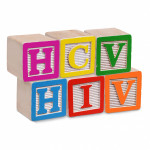Restricting transplantation of livers from certain hepatitis C virus (HCV)–positive individuals may be an overly cautious move, because the risk of transmission of the virus to the recipient may be modest and that individual can receive successful direct-acting antiviral (DAA) treatment anyway.
In certain cases, livers that come from potential donors who test positive for HCV antibodies but negative for signs of viral genetic material, indicating a nonactive infection, may wind up discarded. People who spontaneously clear the virus or who are cured through DAA treatment would fall into this category.
Researchers studied a group of 25 individuals who received liver transplantation from donors who were HCV antibody–positive and HCV nucleic acid test (NAT)–negative. (The NAT test looks for the presence of viral genetic material.) All 25 individuals did not have active hep C at the time they received their transplants. In the majority of cases, the transplanted livers were considered to be associated with a raised risk of HCV transmission, according to Public Health Services’ criteria regarding the characteristics of the donor.
Results were presented at the Annual Meeting of the American Association for the Study of Liver Diseases in Washington, DC
Three months after receiving their transplants, all the recipients underwent HCV testing. Four (16 percent) of them did indeed contract the virus. One of these individuals was HIV positive and had previously been cured of HCV through DAA treatment. Three of the four individuals were treated with DAAs. One person was cured while two others are currently in the midst of treatment, with an undetectable virus at weeks two and four of treatment, respectively. The fourth person could not receive DAA treatment because of pulmonary hypertension, kidney failure and recurrent infections; this person died 10 months after receiving the transplant.
The study authors suggested that further research should look into the exact mechanism of hep C transmission from these organs. In the meantime, they advocate transplanting livers from HCV-positive, HCV NAT–negative donors.
To read the conference abstract, click here.







Comments
Comments